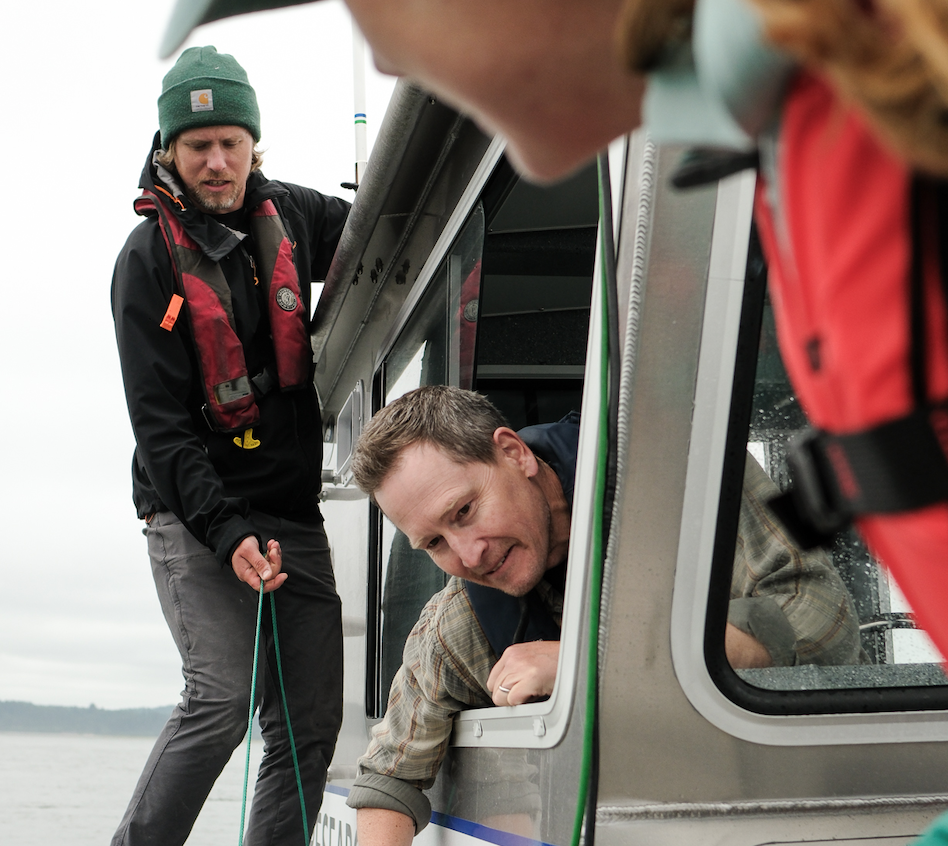Washington state’s first journalism fellows hired
Published 2:17 pm Sunday, April 14, 2024

- The first cohort of Washington state’s journalism fellowship program gathered Tuesday in Pullman. They are, from top left, Riley Yuan, Questen Inghram, Cameron Sheppard and Conor Wilson, and front, from left, Larissa Babiak and Renee Diaz. Yuan joined the Chinook Observer news crew last week.
Washington’s journalism fellowship program is starting on time, mostly, which is how it goes sometimes with news deadlines.
Six of the fellows were hired as of April 8 to fill two-year state-funded positions at newsrooms from Tri-Cities to Long Beach.
The program’s organizer, Washington State University’s Murrow School, expected to fill three additional spots by now but recruiting challenges deferred those until summer.
A few candidates withdrew because the $55,000 salary wasn’t enough or they had other offers. Some wouldn’t or couldn’t relocate to particular locations, according to Ben Shors, the school’s journalism chair.
“That’s sort of the reality of the market but also that’s their reality, too, if they’ve got higher-paying offers to do something and they’ve got bills to pay or family or whatever,” he said.
A few wrinkles are to be expected in a debut program that’s actually moving pretty fast for a state initiative. Shors said they’re learning and will continue refining as the program moves ahead.
“We think it will go much more smoothly in round two,” he said.
State Sen. Karen Keiser, a Des Moines Democrat and former journalist, led efforts last year to get $2.4 million in funding for the program, which is intended to help restore civic journalism lost as the local news industry declined.
That’s enough to fund 16 positions a year, plus administration and some academic research into the local journalism crisis.
The program is modeled on one that California created in 2022. A handful of other states are considering similar programs as they look for ways to sustain local news coverage amid the industry’s disruption and wait for Congress to act on nationwide proposals to support local news.
In Washington, 40 proposals from newsrooms desperate for more journalists were submitted to WSU by the end of November. Nine selected projects were announced in February.
Fellows announced this week are Larissa Babiak, covering immigration and politics for the Tri-City Herald; Renee Diaz, covering civic issues for The Wenatchee World and Northwest Public Broadcasting; Questen Inghram, covering government in smaller Central Washington communities for the Yakima Herald-Republic and El Sol de Yakima; Cameron Sheppard, covering policy, the economy and housing for The News Tribune in Tacoma; Conor Wilson, covering local government including health care, mental health and addiction for The Kitsap Sun and Gig Harbor Now; and Riley Yuan, covering science and environmental issues and Indigenous and immigrant communities for the Chinook Observer in Long Beach.
Some paused
The slots paused until July 1 include a proposal to cover Columbia River issues, submitted by The Columbian in Vancouver and The Daily News in Longview.
Also paused is a proposal by The Spokesman-Review and Spokane Public Radio to cover rural topics, and another by TV stations KHQ in Spokane and KNDU of Tri-Cities and Yakima to cover housing, civic health and agriculture.
Shors said recruiting broadcasters on the program’s initial timetable was hard in part because broadcast journalists can be under contract with their current employers.
The process was also tricky because WSU began recruiting fellows before it was clear where they’d all end up working.
Complications were expected but the school wanted to get the journalists working as soon as possible, Shors said.
“We didn’t want to delay the process and keep them from not getting into the field,” he said.
The next round will include additional newsroom projects. Shors said the goal is for all 16 of this year’s fellows to be secured in July.
New proposals from newsrooms will be considered around May, after the program’s newly selected advisory board begins meeting.
Board members
WSU also released the names of board members this week, when it’s hosting the annual Murrow Symposium in Pullman. They include:
Jim Camden, retired Spokesman-Review journalist; Dee Anne Finken, a former journalism instructor who co-authored the League of Women Voters of Washington report on the journalism crisis; Kaitlin Gillespie, Pacific Northwest Newspaper Guild executive officer; and Noreen Gillespie, Microsoft journalism director.
Other members are Sarah Gustavus Lim, national membership director of Local Independent Online News Publishers; Natasha Hill, editor of the Black Lens; Andrea Otanez, University of Washington teaching professor; Ryan Pitts, Open News co-director; Alana Rocha, editor of the Institute for Nonprofit News’ Rural News Network; and Steve Soliz, KING-5 news anchor and reporter.
International call for press support: A group of major nations adopted principles for supporting the press, including a call for “more and better support to media and journalism.”









